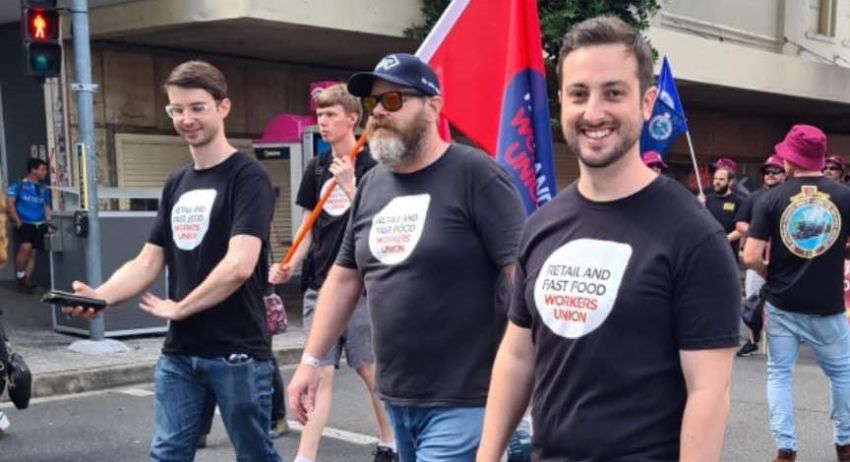
Stephen Bates, the new federal MP for Brisbane, is a unionist and retail worker. One of three new federal Greens MPs elected in Queensland on May 21, he is committed to “community campaigning and giving communities a voice”.
Bates told Green Left in early June that he first joined the Greens after the 2019 election, the one Labor was expected to win. Dismayed at the election results, his immediate reaction — after voting and volunteering for the Greens in the past — was to join the party.
Unwilling to tolerate the conservative agenda of former Prime Minister Scott Morrison, he decided to get active. His political “light bulb moment” had come a few years before while working in the United States at Disney World.
His dream job turned into a nightmare after he came across a co-worker in tears. She was forced to choose between getting needed insulin or paying the rent.
“I was consoling her, but in my mind I was thinking ‘We’re making nothing and this company is making billions and billions of dollars’. And she’s in this situation where she’s having to choose between basic healthcare or shelter.”
“It lit a fire in me,” he said, which changed the direction of his life.
Bates is also becoming known as the Retail and Fast Food Workers Union (RAFFWU) member who unseated Liberal-National MP Trevor Evans, a former CEO of the National Retail Organisation.
RAFFWU is the relatively new union that formed to better organise and represent retail workers after the Shop Distributive and Allied Employees Association (SDA) was signing enterprise bargaining agreements that eroded workers' pay and conditions.
Bates is a committed unionist and, after getting his first retail job, he looked at both the SDA and RAFFWU.
“Joining RAFFWU seemed like a no-brainer because they were fighting for the rights of workers.” In addition, “they weren’t pushing against same sex marriage; they weren’t anti-choice, which is what the SDA has been and still is today”.
Bates believes that unions are less and less represented by Labor. “As Labor has shifted away from a centre-left social democratic platform to really embrace neoliberalism, it goes against the views of the people who [make up Labor's support base].”
Bates is critical of Labor for “not supporting solidarity strikes and not really putting up much of a fight to stop penalty rates being cut”.
Bates was still working in retail, even after the election, telling the ABC he needed to do his final shifts to pay his rent. Further, he said politicians’ pay levels are “insane” when reflecting that his personal pay-packet will quadruple.
Asked about this he said: “I didn’t think making that comment would be controversial but some people did not like it. But I think it is important to talk about pay.”
Bates said the gender pay gap is exacerbated by the general discouragement to talk about politicians’ pay. He has “no regrets” about making his views known.
Greens MPs are directed by their party to tithe 10% of their income to it. Some Greens make additional donations, either to the Global Greens or to community campaigns or charities.
Socialist Alliance has a provision in its constitution that parliamentary income above that of an average workers’ wage be used to help build grassroots campaigns.
When asked about using the Greens’ parliamentary resources to support community campaigns, Bates replied: “We have a responsibility to remember how we got into this position — through community campaigning and giving communities a voice.”
“I see my job as an MP to engage with groups and organisations and, as the MP, to be the resource that can help them and empower them to grow.”
Asked about what the key demands are of the new Labor government, Bates said that the biggest concerns people have are “climate change and cost of living”.
“Labor is going to have to do a lot of work on their climate policy; their targets are not aligned with the science — that is just a fact.
“We need to be focusing on publicly-owned renewables. That’s something people loved when we talked to them.”